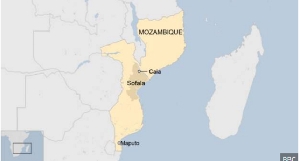Business News of Thursday, 18 September 2014
Source: BBC
Ebola can 'ruin W Africa economies'
The Ebola outbreak could have a catastrophic impact on the economies of Guinea, Liberia and Sierra Leone, the World Bank says.
The organisation says the economic impact of the virus could "grow eight-fold" in the "already fragile states".
However, it says the cost can be limited if the epidemic - and the accompanying fear - is contained by a fast global response.
Ebola has killed 2,461 people in West Africa - the largest ever outbreak.
US President Barack Obama has called the latest outbreak "a threat to global security", and announced a larger US role in fighting the virus. The measures announced included ordering 3,000 US troops to the region and building new healthcare facilities.
The UN Security Council is to hold an emergency meeting on Thursday to discuss the epidemic.
It is expected to pass a resolution demanding a more forceful international response to the crisis, urging member countries to provide medical staff and field hospitals.
The resolution will also call for the lifting of travel restrictions that have prevented health workers from offering assistance. UN officials have described the outbreak as a health crisis "unparalleled in modern times".
The World Bank's analysis said billions of dollars could be drained from West African countries by the end of next year if the virus continued to spread.
Under the worst-case scenario, the global development lender predicted that economic growth next year could be reduced by 2.3 percentage points in Guinea and 8.9 percentage points in Sierra Leone.
It predicted Liberia's economy would be hardest-hit, losing 11.7 percentage points off its growth next year.
The report emphasised the need to tackle the fear of the disease, as well as the virus itself. It said "aversion behaviour", arising from concerns about contagion, was having a bigger economic impact than the "direct costs" imposed by the epidemic.
Productivity has dropped in sectors of the economy such as agriculture and mining as a result of quarantine measures, and because of fears about the spread of the disease. Many people are working less, and earning and spending less as a result, fuelling poverty.
"The primary cost of this tragic outbreak is in human lives and suffering, which has already been terribly difficult to bear," World Bank Group President Jim Yong Kim said.
"But our findings make clear that the sooner we get an adequate containment response and decrease the level of fear and uncertainty, the faster we can blunt Ebola's economic impact."
In a statement released on Wednesday, Liberian President Ellen Johnson Sirleaf welcomed the US plan to combat Ebola, saying she hoped it would "spur the rest of the international community into action".
"This disease is not simply a Liberian or West African problem. The entire community of nations has a stake in ending this crisis," the statement said.
German Chancellor Angela Merkel has said her country will provide logistical aid to Liberia in the battle against Ebola. Ms Johnson Sirleaf had earlier written to Germany, appealing for help.
The IMF said on Wednesday that its executive board was due to consider a proposal to give Guinea, Liberia and Sierra Leone an additional $127m (£78m; 98m euros) to combat the economic impact of Ebola.
The organisation said its staff had estimated that growth was likely to slow in all three countries because of disruption in key sectors. It estimates that the countries will face a shortage of $300m in the next six to nine months.
Also on Wednesday, medical charity Medecins Sans Frontieres (MSF) reported that one of its workers had contracted Ebola in Liberia. The charity said the female employee, a French citizen, would be evacuated to a treatment centre in France.
Meanwhile in Guinea, a team of health officials was attacked on Tuesday during a visit to a village where were raising awareness of the illness.
People in Wamey, in the south of the country, threw stones at the team, which included WHO and Red Cross representatives. At least 10 officials were hurt, and several who escaped into the bush are still missing.
This is not the first such incident. There have been many reports of people in the region saying they do not believe Ebola exists, or not co-operating with health authorities, fearing that a diagnosis means certain death.
In Sierra Leone, people are preparing for a three-day lockdown ordered by the government in an attempt to stop the spread of Ebola.
The BBC's Umaru Fofana in the capital Freetown says many residents are stocking up on food. A number of aid agencies, including MSF, have criticised the lockdown, saying it would not help contain the virus.











